It is no secret that hotel chains throughout the world need to provide guests with an everlasting customer experience if they want to increase client loyalty in the hospitality industry. Providing first-rate guest experiences at affordable rates, has, in fact, become easier with the advent of powerful and advanced technology like artificial intelligence across this industry.
Because it enables hotel chains to make informed decisions that can optimise performance, improve guest experiences, and expedite business processes, artificial or robot intelligence (RI) in hotels has gained a lot of popularity in recent years. In general, RI is designed to assist organisations or companies in better comprehending the demands and desires of their clients, and it enables hospitality professionals to provide guests with first-rate experiences when staying at a hotel. Some major hotel brands, including Marriott International and Hilton Hotels & Resorts, have already incorporated chatbots for a more streamlined hotel experience.
RI is a potent idea that describes the sophisticated and intelligent behaviour of machines or computers that can learn from the information gathered and make wise decisions by analysing such information. The applications of RI have grown exponentially due to technological advancements, and the hotel sector in particular has also been positively impacted by RI. Many hoteliers across the world are now benefiting from the gathering and analysis of consumer data to extract important touchpoints.
The traditional method of taking care of hotel guests from a central front desk point, and physically checking them in or answering questions, is gradually becoming obsolete. Until fairly recently, businesses used to train people specifically for this industry, and hotel chains would engage a number of seasoned employees to attend to guests in person, check their documents, confirm payment and more. The restriction on serving one guest at a time is preventing hotels from enhancing efficiency and reducing the amount of time and effort spent on guest management, and as foot traffic rose, these former systems seem unable to produce higher levels of efficient and effective results.
With the advent of RI and digitisation in the hospitality sector, chatbots have emerged as the preferred guest service tool for hotels. A chatbot, for instance, can handle online questions from prospective guests and relieve some of the load on front desk staff. Self-check-in kiosks are another well-liked innovation that helps to improve customer service and eliminate the inconveniences of time-consuming check-in procedures.
Yotel is a cutting-edge hotel brand with Japanese influences that is especially appealing to guests who seek more from their hotel stay than the standard fare. Through its clever design and innovative use of technology, the brand hopes to alter the status quo. The brand’s affectionately known robot - Yobot, has first been introduced in New York City, but now, Yotel's Boston facility also has over 300 cleverly designed cabins and technology-driven desks that allow guests to check in and choose everything from room service to amenity delivery.
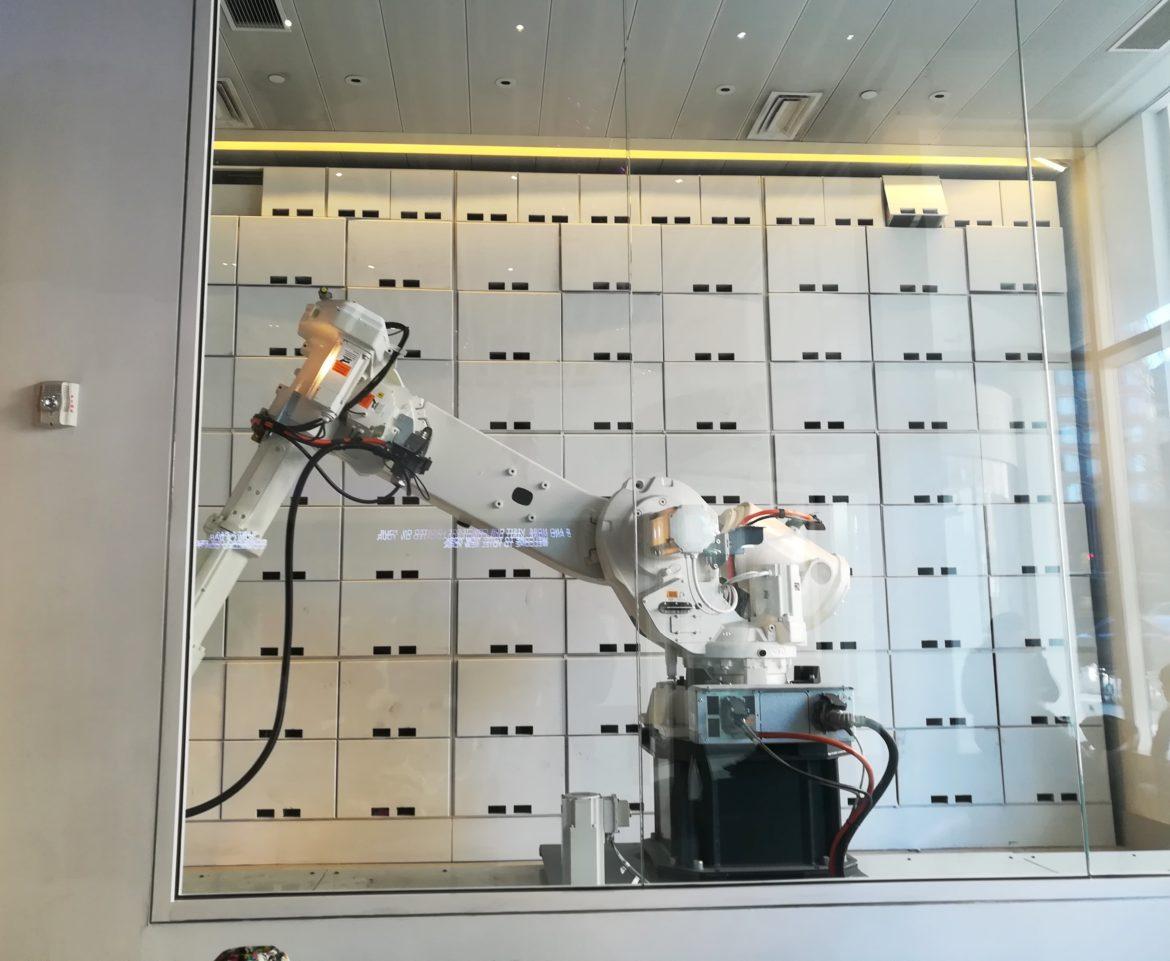
A few multilingual robots await guests at the front desk of this futuristic hotel in the Japanese town of Sasebo, not far from Nagasaki. These machines assist guests with checking in or out in the exact same ways as a human front desk staff would. Each room includes a robot that controls the lighting and heating and offers many other functions like informing guests of the current weather. Even the cloakroom at Henn na Hotel, has a robotic arm that can automatically store guests' luggage.
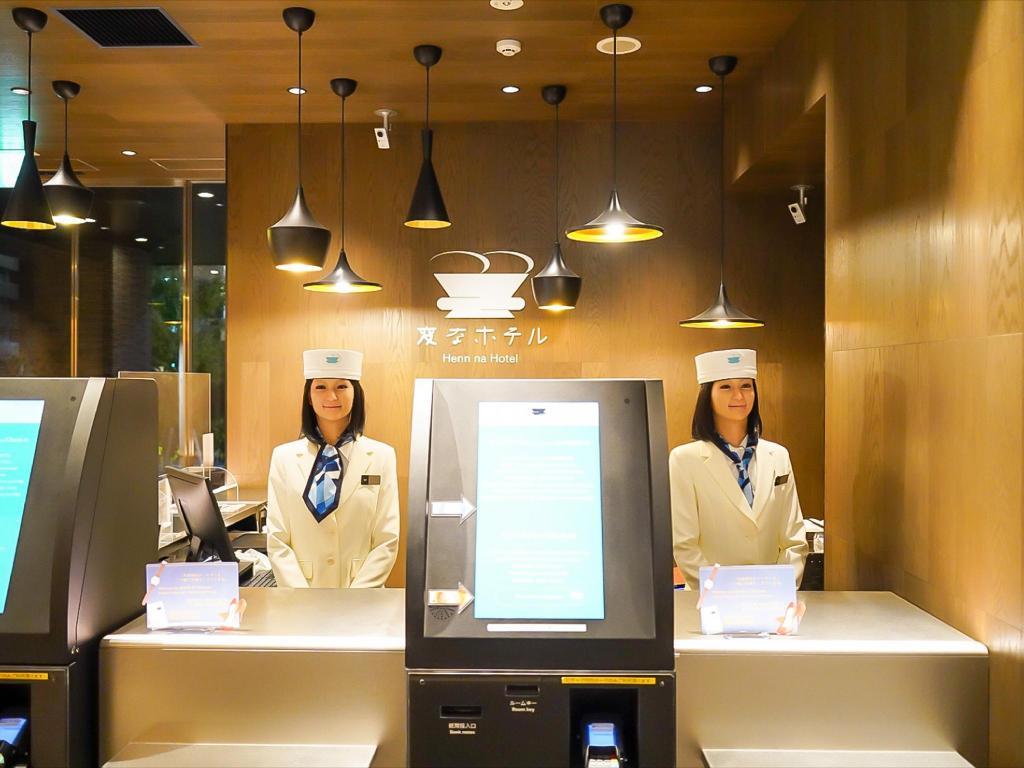
In November 2020, the Hotel Sky in Sandton, South Africa, launched the use of three bots, namely Ariel, Micah, and Lexi, and it was the first hospitality establishment on the African continent to employ RI in this sector of the country.
These robots offer everything from travel advice to room service and even carry customers' luggage to their rooms - all in keeping with consumers' growing preference for socially remote encounters. The three robots were created by CTRL Robotics and have scanners and cameras to replicate human senses.
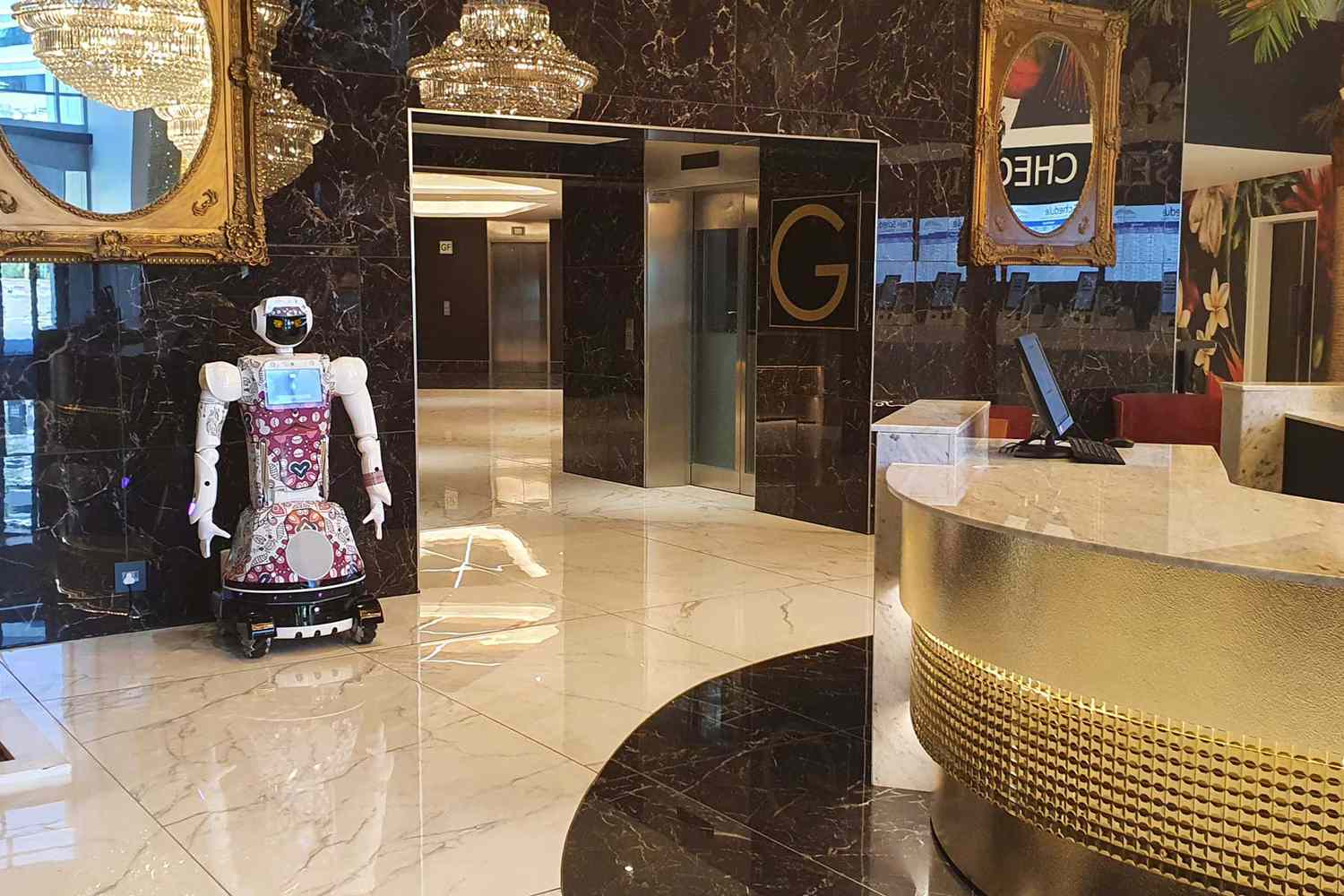
With its 195 rooms, The Hotel EMC2 is a very active and popular establishment in Chicago. The proprietor of this hotel is Scott Greenberg, a scientific enthusiast who strives to go above and beyond what is typically offered in a boutique hotel. Two robots, Leo and Cleo, who are both around three feet tall and have name tags and tuxedo jackets with coattails, are also employed by this hotel.
Leo and Cleo can always be seen pacing the hallways or delivering items to guests and they provide anything guests ask for, whether it's a toothbrush, some snacks, or an extra towel for their room. This hotel also uses a portion of its earnings to fund a program called SYNCERE that supports Science, Technology, Engineering, and Mathematics (or STEM) initiatives in impoverished Chicago neighbourhoods.
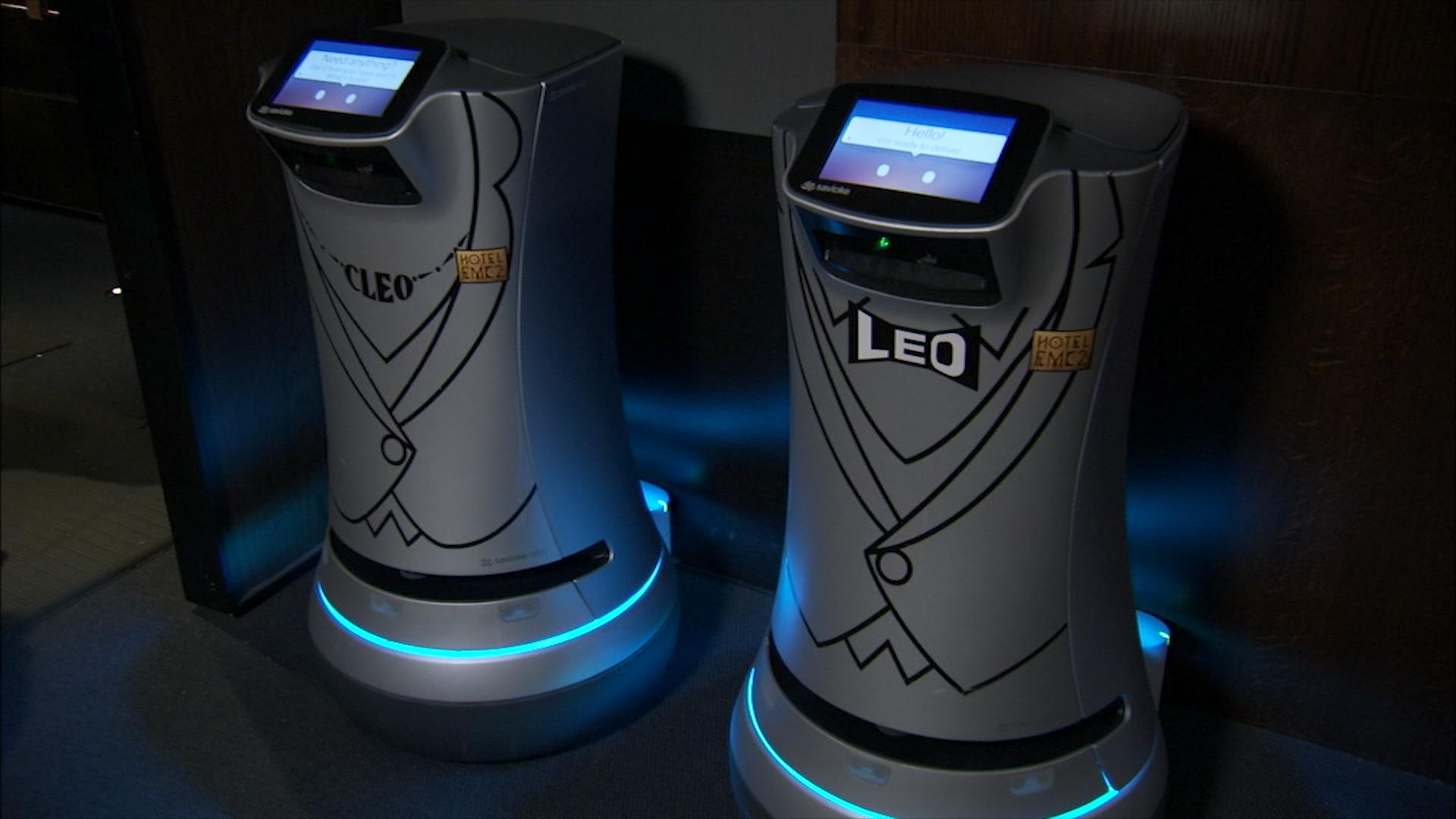
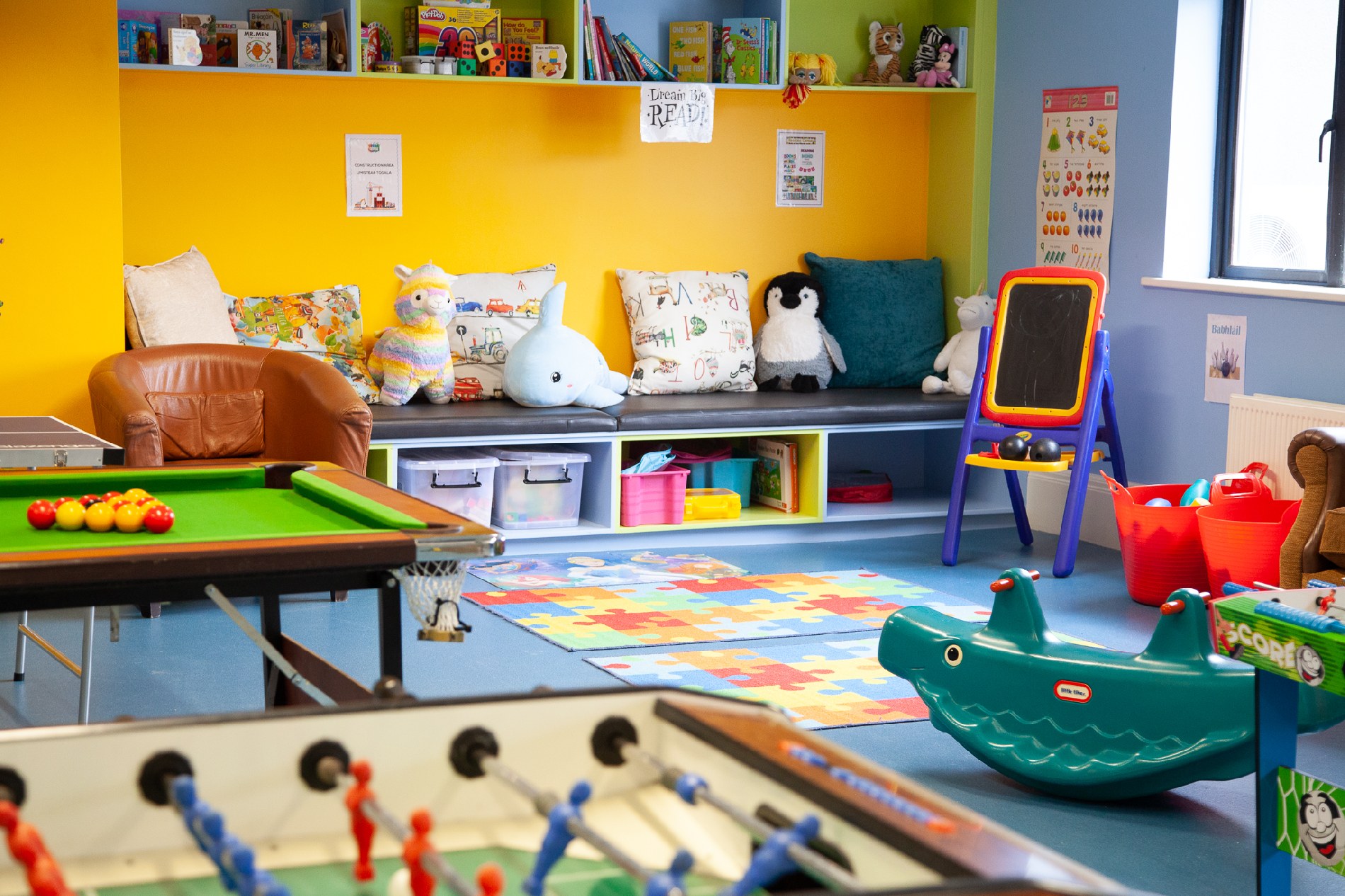
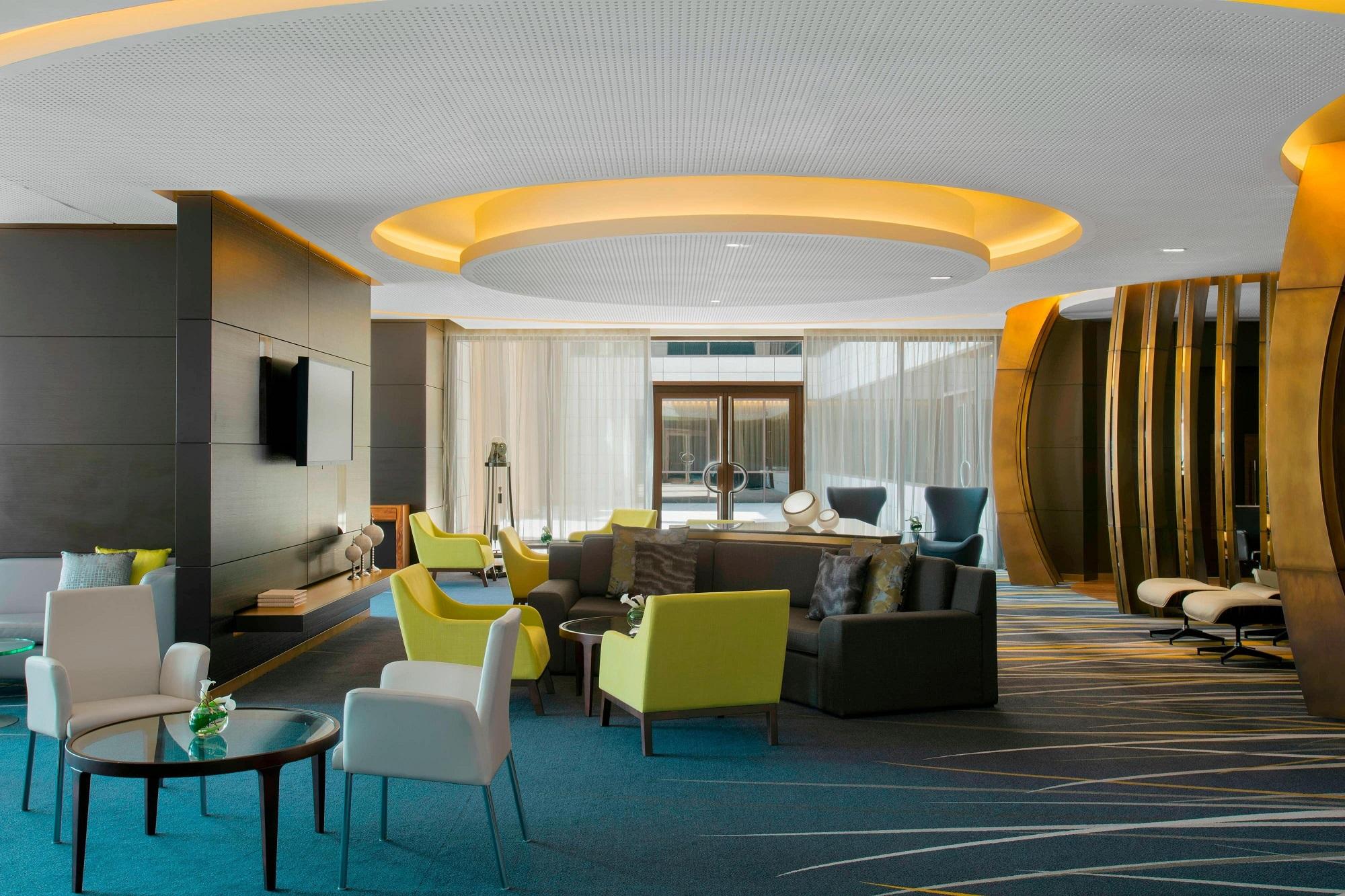
If you want the latest information on the best Hotel Executive Club Lounges, Hotel Kids Clubs and other travel information, be sure to sign up for our free newsletter full of tips and great travel ideas.